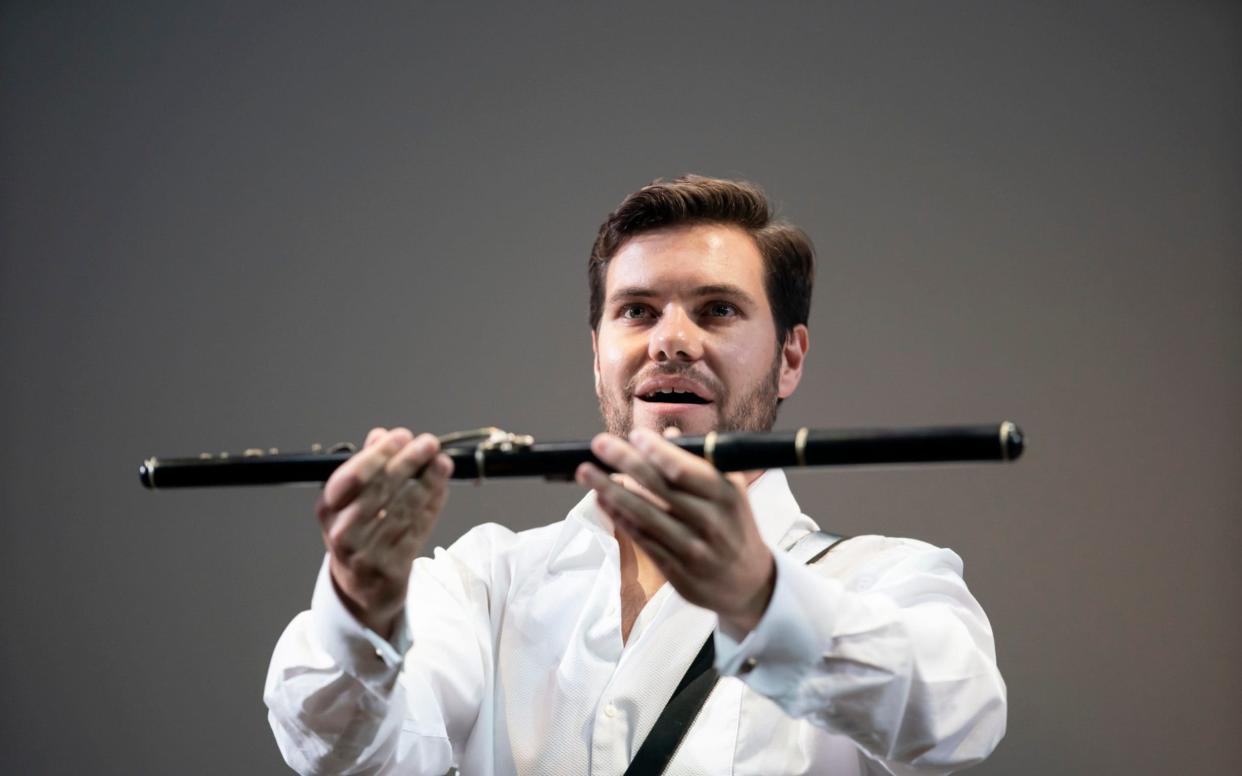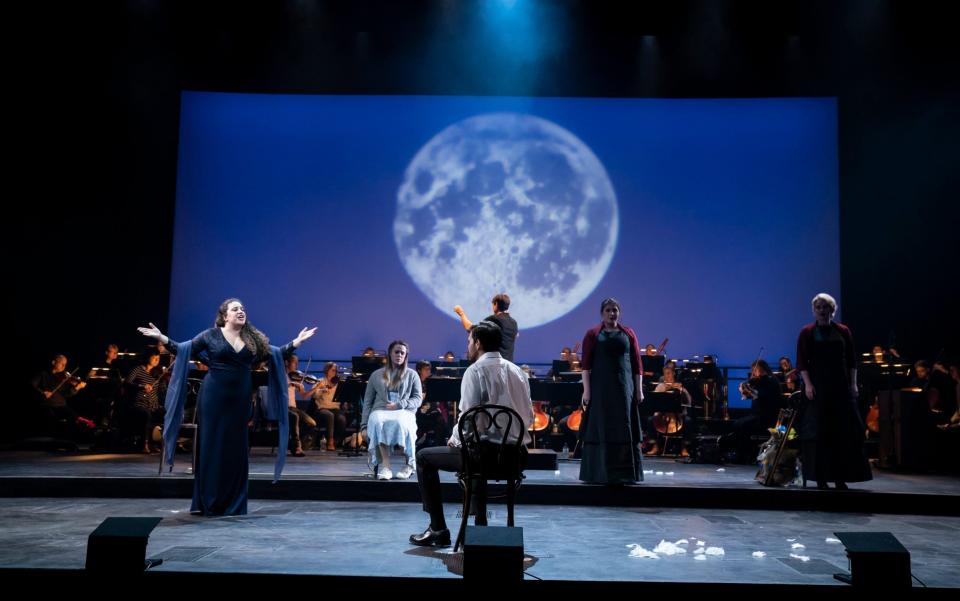The Magic Flute, Glyndebourne, review: this back-to-basics Mozart hits all the right notes

Glyndebourne must have flung enormous amounts of money at its pointlessly extravagant new production of Die Zauberflöte last year, only to find it greeted with general disdain. Why did the management bother? This back-to-basics concert version, put together at short notice on a minimal budget, cut down to 90 minutes and operating on Covid-secure principles, offered a thoroughly engaging experience that palpably delighted an enthusiastic audience hungry for escape from the gloom.
Using Jeremy Sams’s English translation, it wasn’t the most subtle or polished interpretation of the piece I’ve ever seen, but – not least because this was sadly the last opera that I will experience in a theatre for some time – it hit the spot and touched the heart.
The only backdrop was a blue screen, the only setting six chairs and a few small props. The orchestra occupied the rear of the stage, the singers wore clothes that might have been their own. Gone were the overture, the duet between Pamina and Papageno, the trio of boys, Pamina’s madness and (mercifully, in my view) Sarastro’s drearily sententious arias.
But given the total involvement from all concerned and some admirable singing and orchestral playing, competently overseen by the unassertive conductor Leo McFall, enough of Mozart’s genius remained to create a coherent pantomime drama.
Donna Stirrup directed the action clearly and sensitively, her only gloss being the presentation of Sarastro (David Shipley) as a smoothie American politico surrounded by cheerleaders. A justifiable move, surely, since in these so-called enlightened days, his mansplaining sexism sticks in the craw and makes it impossible to regard him as someone of God-like wisdom.

What animated the show were individual performances rather than an imposed concept. Outstanding was Huw Montague Rendall (the son of mezzo-soprano Diana Montague and tenor David Rendall) as Papageno. Being an ageing cynic, I confess I am now rather bored by this tiresome comic character and his hummable ditties, but Montague Rendall showed such light-touch warmth and ease in his singing and acting that I could only be charmed; he was blessed in an equally delightful spouse in Madison Nonoa-Horsefield.
Thomas Atkins was Tamino. His is an impressively juicy and freely produced tenor, but I wasn’t convinced he’s cut out for this role – he wallowed in music that should be sung with elegant restraint, both in terms of volume and phrasing. Puccini may be more his bag than Mozart. In contrast, Gemma Summerfield sang Pamina’s aria with such ravishing purity of tone that one wished that less of her music had been excised.
Nazan Fikret sparkled through the Queen of Night’s high-wire acrobatics, attended by an excellent trio of ladies in Carrie-Ann Williams, Kamilla Dunstan and Eirlys Myfanwy Davies. A small chorus sang with infectious enthusiasm – as indeed did the whole cast. How frustrating that the lockdown means that only two of the scheduled 10 performances can go ahead. “Is there an end to all this darkness?” Tamino asks the guardian of Sarastro’s portals. “Soon” is the haunting answer – or “never”.
Until Tues. Tickets: 01273 815000; glyndebourne.com

